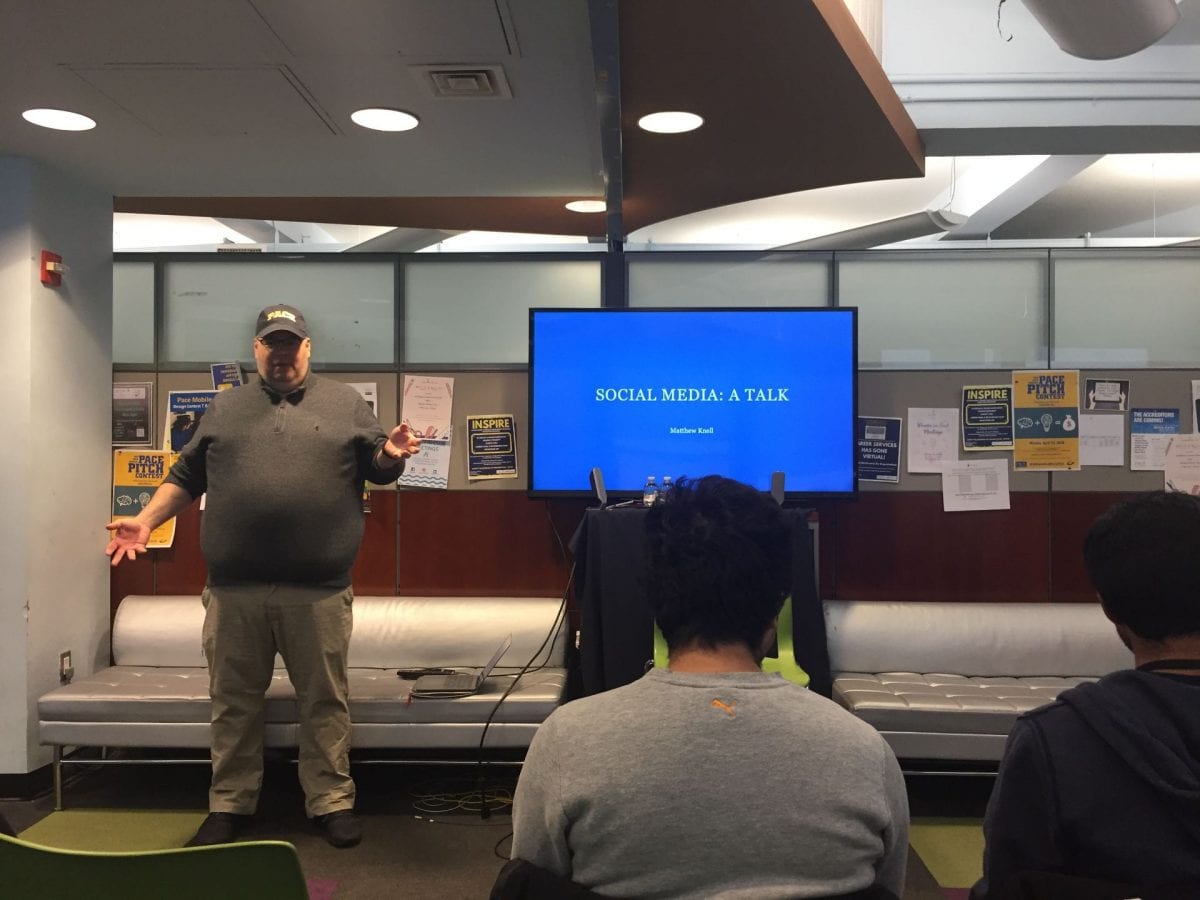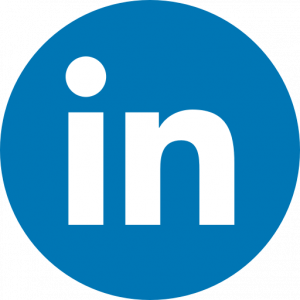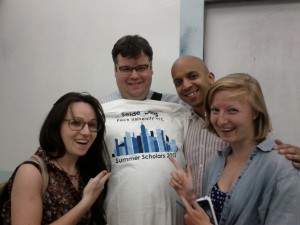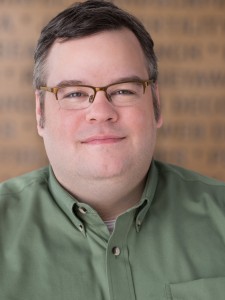 Matthew Knell is one of our favorite alumni for various reasons. A hardworking student who went on to an exciting career in social media and digital marketing, Matt is a thought leader in the industry, having spoken at conferences including SXSW Interactive, Social Media Week and SocialFresh, and having been featured by leading publications including Fast Company, CNBC, PR Week, TechCrunch, AllThingsD, and Advertising Age. He also contributes regularly to publications and maintains a thriving site discussing digital media trends on Medium.
Matthew Knell is one of our favorite alumni for various reasons. A hardworking student who went on to an exciting career in social media and digital marketing, Matt is a thought leader in the industry, having spoken at conferences including SXSW Interactive, Social Media Week and SocialFresh, and having been featured by leading publications including Fast Company, CNBC, PR Week, TechCrunch, AllThingsD, and Advertising Age. He also contributes regularly to publications and maintains a thriving site discussing digital media trends on Medium.
Even while leaping from success to success, Matt has never forgotten his experience at the Seidenberg School. He is always happy to attend events and lend his support – which is why we asked him to bring his expertise to the Seidenberg Advisory board (spoiler alert: he accepted).
We recently had a chance to sit down with Matt, shortly after his appointment to the board – giving us a unique chance to learn about Matt’s career, inspirations, and very particular selections for making a PB&J. Enjoy!
What motivates you to support the Seidenberg School in so many ways?
I was the first in my family to go to college, and Pace has a soft spot in my heart because of that. Scholarships and great instructors gave me a great way to get out of what could have been a very ordinary and average life. Not a bad life, but ordinary. When you have the opportunity to learn from great staff, people who really care, the community, you want to give back to that and help other people so they can have the same chances you did.
How would someone get to where you are now?
The way I’ve built my career is about being open to different things and trying things that are interesting. I was an Information Systems major, which gave me a fundamental understanding of how systems work. Learning how things are put together helps because you learn in time that everything in life has a system. Understanding the core frameworks of systems helps you figure them out. If you can understand how a system works, you can master it.
I’ve learned to be open to new ideas and, as much as possible, to be flexible in work environments. I try to be the nicest person in the room. Relationships help you get far in life, and having a core group of people who you help and who help you is never a bad thing. I try to make the world a better place and to do the right thing by people. I don’t always get it right – I don’t think anyone does. But, don’t let that make you afraid to make mistakes, because you’re going to. If your heart’s in the right place and your motives are pure and genuine – then you’re probably going to be alright.
For fun I took a personality test, and found out my personality type is “virtuoso”. I think it describes me well.
Who has inspired you in life and why?
All people I know have inspired me a little bit at a time. This industry (digital media) allows people to be creative and it’s inspiring to see people problem solve when presented with new things that have never been seen before. Each job I’ve had, I’ve been lucky enough to have a mentor to help me through things. In terms of outside of work, I’d have to rank Jim Henson as an absolute genius. What he built with the Muppets was genuinely amazing. I’ve always thought Kermit the Frog was very pragmatic and you see a lot of Jim in him.
Would you rather be liked or respected?
Probably respected. Treating people fair and equitably means you’re always going to do things that people don’t like. You can be kind and thoughtful in horrible moments of life, and people remember that, even if you’re doing a difficult thing.
Do you think you’d be in your position if you were a jerk?
No, definitely not. The CEO talked to a lot of people who know me and this is where being the nicest guy in the room really matters. I think good hires are a strong blend of character and talent. No one likes working with a jerk.
What do you think about when you’re driving alone in your car?
Typically what I’m gonna do next, make next, how can I make my job better – it’s forward thinking. But you’re just as often likely to find i’m thinking about the next Mets game and where I can get a great sandwich.
How do you make a PB&J?
Generic Wonder Bread (though I do love Trader Joe’s Texas Toast when I can get it), creamy not crunchy PB. It has to be grape or strawberry jelly, and if it’s grape, it has to be concord. Cut the crusts.
What would you do if you won $10 million in the lottery?
Besides buying a house and paying all the debts, give to animal relief organizations. They gave us all our pets; we’d like to give back. Invest in tech businesses – giving start-ups like Codapillar a chance to grow.
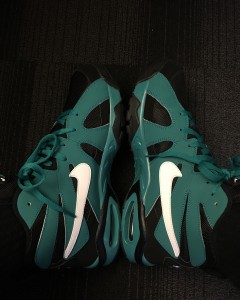 Best gift you’ve received?
Best gift you’ve received?
When I was a kid, I wanted a pair of Ken Griffey Jr sneakers so badly I got a job to save for them, but I didn’t end up getting them. A few years ago, they made a retro version and my wife got them for me. Getting them was a culmination of 12-year-old Matt’s delight and glee.
What were your experiences when the internet first started to roll out?
I was a junior in high school. I remember being one of the first to get on Staten Island’s internet provider. My first experience with the internet was Compuserve and I remember vividly playing text-based trivia games you’d play for $4 an hour. Email addresses were all numbers @compuserve.com
I remember AOL being the hot thing because it has pictures. Old AOL chatrooms, followed by IRC, which was the next wave of ‘how do you get on the internet?’ Then the web browser came along. When I was a junior in high school I taught myself HTML, then I started going to Pace. Having the experience of watching the internet grow was really cool.
If you were stranded on a desert island, what three items would you have to have?
Food, obviously! My wife, of course, somebody to talk to. Then probably my iPad because I can do so much, even if it doesn’t have connectivity.
You’re still on that desert island, but you now have all the items in this room: what would you build?
(In the room: a long conference table with 12 chairs. A TV, lots of snacks)
Does the island have internet access? A superentertainment system. Plus, I have Chips Ahoy!
You wouldn’t try to get off the island?
Not if I have everything I need!
Tell me about one of the items on your work desk
I have a bunch of things. A picture of my wife. A little plastic Wall-E toy, and a Wall-E and Eva, which reminds me of my wife and I. I have a LEGO business card holder – a reminder that you can always keep building on things, and if things aren’t working out you can always build them again. them. And, of course, a Pace t-shirt.
What’s the best advice you can give to technology students?
Talk to people – especially people who aren’t technology students. Get out and learn from people who are not technologists. The number one personality type I hire is a technologist who can actually communicate. It’s wonderful to be smart and be able to build the most awesome things, but if you can’t communicate it to others, it’s just not going to happen. Go to conferences. Go to hackathons. Meet people – your 20s are for building a life.
This is New York: invent a pizza topping
Chopped up Nathan’s Fries. They get just gooshy enough that if you cook them they get soft, and they’d go great with the cheese.
Thank you, Matthew, for a wonderful conversation and we are looking forward to having you as a member of the Seidenberg School Advisory Board!
Read Matt’s Medium post about his Pace University experience.


